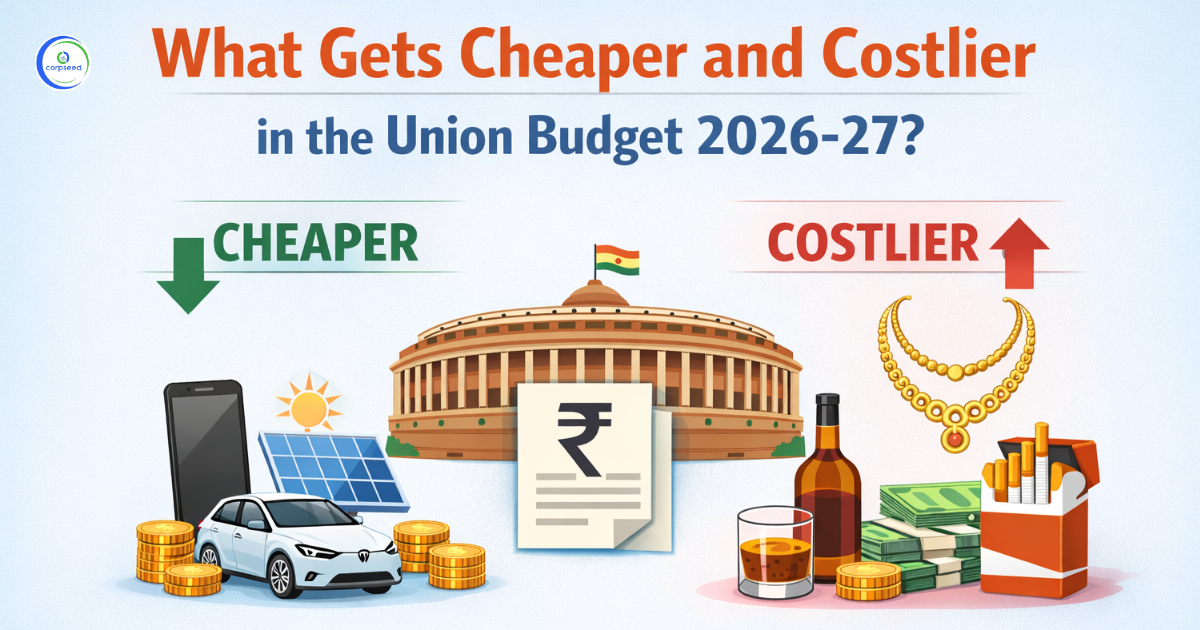Introduction of GST Registration
The Goods and Services Tax (GST) was implemented in India in the year 2017 as a form of indirect tax. It acts as one of Verona in the supply of goods and services from the manufacturing industry to the consumer. The GST Council, a body consisting of finance ministers from all states, determines the tax rate and other related matters, including the GST expenditure limit. As per recent changes by the central government, the minimum threshold for GST turnover in India is Rs. 40 lakhs.
Table of Contents
--------------Blog Contact Form-------------
Minimum Limit for GST Registration
Obtaining a unique identification number for individuals or entities providing goods or services in India is known as GST Registration. Registering for GST is optional for any individual or organization, regardless of their turnover. Nevertheless, it is required once the revenue exceeds certain limits, determined by the state's classification and the type of transaction.
The aggregate turnover in a financial year determines the turnover threshold for GST registration. Aggregate turnover refers to the total worth of all taxable supplies, exempt supplies, exports, and inter-state supplies made by an individual with the same PAN, without including GST taxes. Service providers must consider the total turnover, which encompasses the amount of incoming supplies subject to tax under the reverse charge system.
In India, GST classifies states and union territories into two groups: normal category states and special category states. The states in the special category are either granted special status under Article 370 or Article 371 of the Constitution of India or situated in the North-Eastern region or Himalayan region of the country.
The states classified as special category under GST regulations include:
- Arunachal Pradesh.
- Assam
- The region of Jammu and Kashmir.
- Ladakh region in India
- Manipur.
- Meghalaya
- Mizoram
- Nagaland.
- Sikkim
- Tripura
- Uttarakhand
- Himachal Pradesh.
The turnover thresholds for GST registration vary between regular and special category states. The turnover limits for various types of supplies are outlined in the table below.
| Type of Supply | Normal Category States | Special category States |
| Goods | Rs. 40 Lakh | Rs. 20 lakh |
| Services | Rs. 20 Lakh | Rs. 10 Lakh |
| Goods and Services | Rs. 20 Lakh | Rs. 10 Lakh |
Calculating the total turnover using the Permanent Account Number (PAN) is crucial, even for companies operating in multiple sites. This is mandatory to register for GST in each state or union territory when a person or entity's total turnover goes beyond the specified limit. Hence, an individual or organization might need to acquire several GST registrations for distinct states or union territories, based on the revenue generated in each state or union territory.
Read Our Blog: How to Get a GST Certificate
What Is The Process Of Verifying GST Registration Status?
Upon submitting your GST Registration application, you will receive an Application Reference Number (ARN). You can track the status of a GST registration application online on the GST portal after 15 days of submission.
What Is The Process For Downloading The GST Registration Certificate?
A certificate of GST registration is an official document indicating that a business has been registered under the GST system. Every Indian business that surpasses the set turnover limit must register for GST.
All individuals who meet the requirements can register for GST on the GST website, by going to www.gst.gov.in through a web browser. Once the officer completes the verification of the application, the registration is then approved. The registration becomes valid on the date when the responsibility for registration starts, if the application is filed within 30 days of that date. Yet, in case of a delay in submission, the GST registration will be considered effective from the date it was granted.
Read Our Blog: How to Download GST Certificate Online?
Who Does Not Need To Register For GST?
Certain Individuals are not required to adhere to GST tax rate slabs and registration, either due to legal provisions or notification.
The following characteristics include:
- Individuals involved in providing goods or services that are exempted or rated zero: People who solely offer tax-free products or services do not require GST registration. For example, sellers of fresh fruits and vegetables are not required to pay GST.
- Farmers: A farmer is an individual who personally works on land to grow agricultural products. This individual is not required to register for GST because the quantity of agricultural goods produced from their land is not significant enough. This is because agricultural activities are not categorized as either a supply of goods or a supply of services according to the GST law. Nevertheless, if a farmer participates in any additional taxable activities, like processing, packaging, or selling agricultural products, they must register under GST.
- Individuals who fall under the threshold exemption limit: According to the GST law, businesses are given a threshold exemption limit based on their yearly turnover. The turnover represents the total value of all taxable supplies that an individual makes in one year. The Rs. threshold exemption limit remains unchanged. 20 lakhs for the majority of states and Rs. 10 lakhs designated for special category states, including the northeastern and hilly states.
If an individual's revenue is below the exemption limit, they are not obligated to enroll for GST. Nevertheless, certain individuals are not qualified for this exemption and must enroll for GST no matter their revenue. This group consists of individuals who provide products or services in different states, individuals who sometimes engage in taxable transactions, and individuals who are non-residents of India but conduct taxable transactions within India.
Read Our Blog: GST on Gold: Effects of Gold GST Rate in India 2024
To maximize the benefits of the updated GST registration threshold, companies need to:
- Submit their GST returns consistently and promptly. This will prevent them from incurring any fees or charges for tardy submissions.
- Keep accurate records of their sales and acquisitions. This will guarantee that they can accurately compute their taxes and submit correct GST returns.
- Stay informed about updates in GST rates and regulations. This will assist them in guaranteeing that they adhere to the most recent rules and requirements.
Read Our Blog: What is The Minimum Turnover For GST?
How To Calculate The GST Turnover Threshold?
The calculation of the turnover limit for GST registration depends on the estimate of the total turnover of your business. This relates to the minimum business turnover you must register for GST: These are the factors you should consider when calculating the turnover threshold for GST registration.
- Taxable Sales Value: This refers to the total value of sales subject to GST. You must consider the value of all taxable goods and services you sell.
- Shipped sales value: Certain goods and services are exempt from GST. Although these sales are not subject to GST, you still need to take their value into account when estimating your turnover when you register.
- Export of goods and services: This is the income your company receives from international sales. This is important because it is converted to local currencies for accounting, tax, and compliance purposes.
- Interstate supplies: This refers to the sale of goods or services to customers in other states of India and the associated IGST (Integrated Goods and Services Tax) taxes.
Read Our Blog: How to Download GST Certificate?
Conclusion
GST registration is a key component of effective business management and enhances legitimacy and legality. If the annual turnover of the business exceeds 40 lakhs, it needs to be registered as per GST regulations. It is important to understand that GST eligibility requires fulfillment of turnover requirements, a valid PAN card, and a taxable supply of goods and services. In addition to ensuring compliance, compliance has several benefits, such as lower compliance costs, more efficient tax processes, and increased competitiveness. Businesses should strategically adapt to GST regulations to streamline their operations and enhance branding.
This portion of the site is for informational purposes only. The content is not legal advice. The statements and opinions are the expression of author, not corpseed, and have not been evaluated by corpseed for accuracy, completeness, or changes in the law.
BOOK A FREE CONSULTATION
Get help from an experienced legal adviser. Schedule your consultation at a time that works for you and it's absolutely FREE.


.webp)






